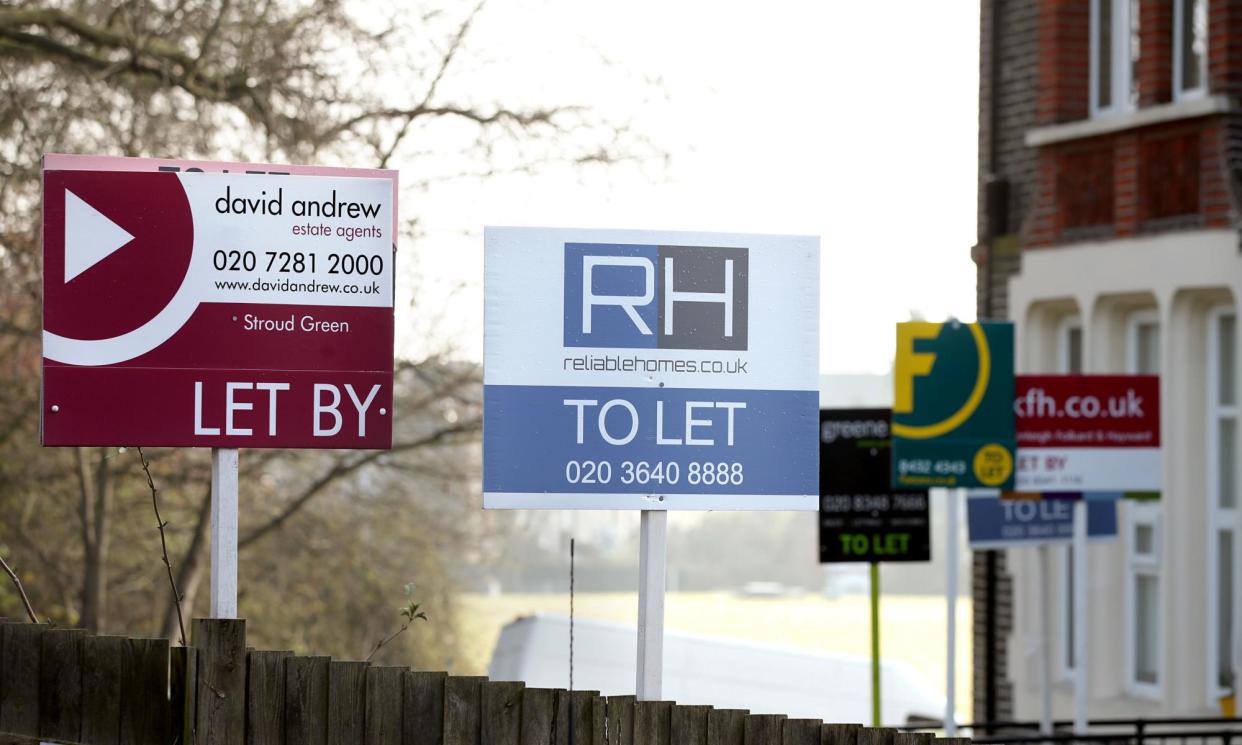Inaction on no-fault evictions blamed for thousands facing homelessness

Households in England have been threatened more than 80,000 times with homelessness due to no-fault evictions since the Conservative government first announced it would outlaw the practice, according to a homeless charity.
Promised legislation to scrap section 21 notices, which allow landlords to end tenancies at will with just two months’ notice, were first announced in parliament exactly five years ago, on 15 April 2019, by the then prime minister, Theresa May, and were repeated in the Conservative manifesto, but the bill has been repeatedly delayed.
Analysis of official data by the charity Homeless Link, a body representing hundreds of frontline services in England, households had approached local councils 84,650 times for support after facing eviction in the five years since the announcement – the equivalent of 52 approaches a day, and one of the largest causes of homelessness over the period.
The data, from the Department for Levelling up, Housing and Communities (DLUHC), shows numbers peaked between April and June 2023, the period when the government introduced its renters’ reform bill pledging to end the uncertainty hanging over private tenants.
Ministry of Justice figures released earlier this year show that more than 26,000 households had been evicted by bailiffs after court proceedings following section 21 notices since the pledge.
Recent correspondence from the housing minister Jacob Young to Tory MPs indicated that the legislation would not immediately end all section 21 evictions, leading to warnings from campaigners that Michael Gove, the housing secretary, was reneging on his pledge to end the practice before the general election.
Homeless Link’s chief executive, Rick Henderson, said: “Everyone deserves a safe, secure place to live. It is clearly not right that someone can be evicted from their home for no reason with just two months’ notice. The government identified this in 2019 but its inaction has led to tens of thousands of households unnecessarily facing homelessness.
“A huge shortage of genuinely affordable housing means when a household approaches their local authority with a section 21 notice, and the local authority has a statutory duty to help them, often all they can do is try to keep them in that property, find them another private rented property or, as a last resort, place them in temporary accommodation at huge expense. Those who the local authority don’t have a duty to support tragically often end up sleeping rough.”
One private renter who lost his home under a section 21 notice was Kelvin (not his real name), now supported by the Your Place charity in east London. He was living in a house share in the capital for three years before his landlord wrote to say they were being evicted. On the day of the eviction he was not given time to move out all his belongings before the locks were changed.
“I was so shocked and upset,” he said. “All of a sudden, even though I was keeping up with my rent and my bills, I was homeless.”
While he counts himself lucky to have temporary accommodation and stability, Kelvin said: “I’ve lost trust in private landlords and things need to change so that this doesn’t keep happening to people.”
There are currently a record number of households, including more than 100,000 children, living in temporary accommodation, according to Homeless Link. Poor temporary housing has contributed to the deaths of more than 50 children since 2019, a recent investigation found.
A DLUHC spokesperson said: “We are committed to delivering our landmark renters (reform) bill that will provide a fairer private rented sector for both tenants and landlords. The bill will abolish section 21 evictions – giving people more security in their homes and empowering them to challenge poor practices.”


